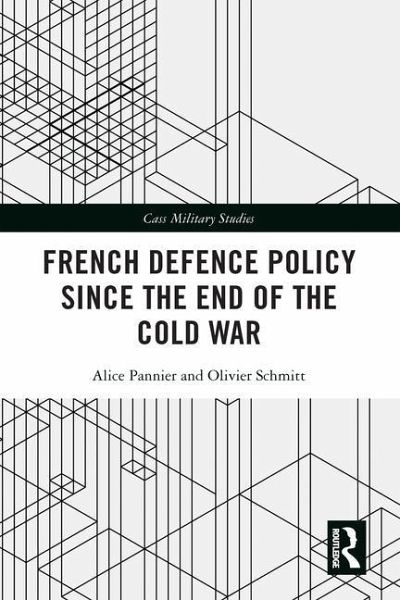
French Defence Policy Since the End of the Cold War
Versandkostenfrei!
Versandfertig in 6-10 Tagen
45,99 €
inkl. MwSt.
Weitere Ausgaben:

PAYBACK Punkte
23 °P sammeln!
This book describes the evolution of French defence policy since the end of the Cold War.For the past thirty years there have been significant changes to French defence policy as a result of several contextual evolutions. Changes include shifts in the global balance of power, new understandings of the notion of international security, economic downturns, and developments in European integration. Yet despite these changes, the purpose of France's grand strategy and its main principles have remained remarkably stable over time. This book identifies the incentives, representations and objectives ...
This book describes the evolution of French defence policy since the end of the Cold War.
For the past thirty years there have been significant changes to French defence policy as a result of several contextual evolutions. Changes include shifts in the global balance of power, new understandings of the notion of international security, economic downturns, and developments in European integration. Yet despite these changes, the purpose of France's grand strategy and its main principles have remained remarkably stable over time. This book identifies the incentives, representations and objectives of French defence policy The authors examine the general mechanisms that influence policy change and military transformation in democracies, the importance of status-seeking in international relations, the processes of strategy-making by a middle power, and the dilemmas and challenges of security cooperation. By doing so the book raises a number of questions related to the ways states adjust (or not) their security policies in a transformed international system. This book makes French-language sources available to non-French-speaking readers and contributes to a better understanding of a country that is at the forefront of Europe's external action.
This book will be of great interest to students of defence studies, French politics, military studies, security studies, and IR in general.
For the past thirty years there have been significant changes to French defence policy as a result of several contextual evolutions. Changes include shifts in the global balance of power, new understandings of the notion of international security, economic downturns, and developments in European integration. Yet despite these changes, the purpose of France's grand strategy and its main principles have remained remarkably stable over time. This book identifies the incentives, representations and objectives of French defence policy The authors examine the general mechanisms that influence policy change and military transformation in democracies, the importance of status-seeking in international relations, the processes of strategy-making by a middle power, and the dilemmas and challenges of security cooperation. By doing so the book raises a number of questions related to the ways states adjust (or not) their security policies in a transformed international system. This book makes French-language sources available to non-French-speaking readers and contributes to a better understanding of a country that is at the forefront of Europe's external action.
This book will be of great interest to students of defence studies, French politics, military studies, security studies, and IR in general.














